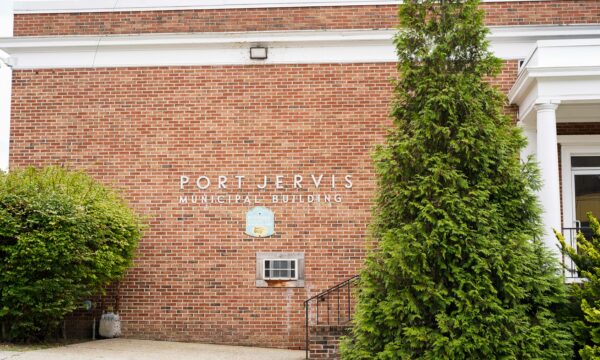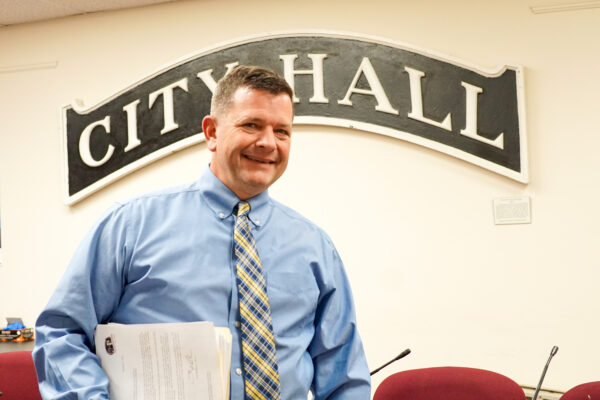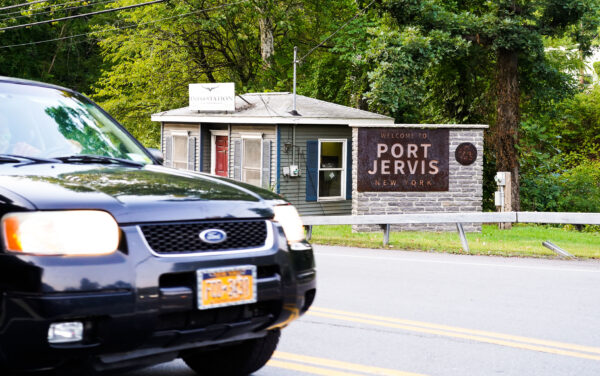After an hour-long discussion on Dec. 12, Port Jervis City Council couldn’t muster enough support for its expected nearly eight percent tax hike and postponed the budget vote to the next meeting.
Councilman-At-Large Stanley Siegel told The Epoch Times on Dec. 13. “We are in a predicament. It is heartbreaking.”
Over his 19 years in the city council, this is one of the most challenging budget sessions, Siegel said.

“People today are suffering from the increased cost of electricity, gas to heat their houses … you compound all these increases together, there are going to be people that will lose their homes because they couldn’t afford all these increases,” he said.
Siegel hopes to bring the tax hike down to between five and six percent.
He said the council had asked Mayor Kelly Decker to continue working with department heads to postpone some requests, particularly those from public works and police, which have the two largest spending budgets among all.
One solution could be to hold off hiring a new full-time public works employee, and another could be to cut the number of new vehicles for the police department, he said.
“But we don’t want to be in a position to tell them what to do because that will be micromanaging,” Siegel said. “We want to be in a position to ask them as managers of their department to determine if they are able to do that.”
Differing Stances
He added that he was willing to have his salary forfeited to help the city, but the idea wasn’t favored by some council members and failed to gain traction.
“I encourage people to reach out to call council people, the mayor, and myself to give us their ideas because they have this increase to live with,” he said.
If cuts were not found and the tax hike remained at 7.99 percent, Siegel said he would not vote for it.
“The people cannot afford it, and I represent the entire city [as councilman-at-large],” he said.
Three council members—Regis Foster, Timothy Simmons, and Elizabeth Miller—told The Epoch Times that although they hoped for a lesser tax hike, they would still vote “yes” if the rate remained the same.

“With inflation the way it is, we are kind of in a position where there are powers above our control,” Simmons said. “Our state and national governments are really kind of driving the bus here, and we are just passengers on that bus.”
Miller said, “I have an obligation as a councilperson to people in my ward, in the city, and the city itself to make sure that we can pay our bills. I would vote ‘yes’ with the hopes that we can bring that percentage down in 2024.”
On Dec. 21, the city council plans to hold another workshop where members would review the budget line by line with department heads one more time—they have had several such sessions in the past weeks.
The budget vote is expected to be held at the Dec. 27 council meeting.
Cuts Will Be ‘Hard’
On Oct. 3, Mayor Decker submitted to the city council a proposed 2023 budget of $20 million, up by about $1 million from the past year.
The proposed property tax levy was $7.3 million, up by almost 9 percent.
Since then, the city council members have worked with department heads to look for ways to bring down the tax hike, cutting it to 7 percent at one point.
However, the newly released employee health insurance rates bumped it up again to 7.99 percent.

“We worked very diligently to try not to over-inflate income and try to cut expenses, and it was able to be dwindled down to 7.99 percent. To be honest, I think it is hard to go any lower,” Decker told The Epoch Times on Dec. 12.
“And you are only going to hurt the city if you cut more because the city needs to move forward, it needs to prosper. You need to be respectful of your citizens,” Decker added.
Still, Decker said he understood why the city council delayed the vote.
“I think the council just wants to be vigilant. They are just trying to do their due diligence to make sure that they are getting the budget into the lowest part that they can before passing it.”
Council Finance Chair Miller agreed that further cuts would be hard.
“At this point, most of our departments have cut what they can cut,” she said. “And I just had a lot of faith in the department heads, and I know that they wouldn’t ask carte blanche for things that they don’t need.”
For instance, she said the new hire for the public works department was needed because the state-mandated sewer realignment work took away manpower from regular city services such as garbage pickup and street cleaning.
“It is going to be a very hard year for everyone, our people in the city included. But we cannot have people pick up our garbage, and we cannot have them plow our streets if we don’t do this percentage increase,” she said.

Sewer Fees Hike
Aside from a property tax hike, total sewer charges are set to go up by almost 40 percent due to a $20-million New York State-mandated sewer repair project.
Under the State Department of Environmental Conservation mandate, Port Jervis must fix up about 30 miles of leaking sewer pipes to meet certain environmental standards.
The city just got a recent $5 million grant from the New York State Environmental Facilities Corporation (EFC) to pay for the project.
Still, about three-quarters of the total cost is still expected to be shouldered by taxpayers.
The city is working with EFC on an interest-free loan to cover the rest of the cost, which has a repayment plan that spans between 30 and 40 years.
The original cost of the project was estimated at around $100 million, but the city later decided to use innovative sewer realignment techniques to drive the expenses down to $20 million.









